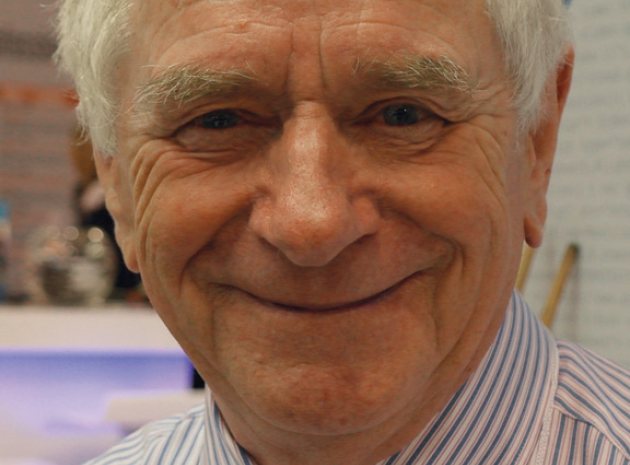Johnny Ball still recalls the stark contrast between his primary and secondary education – and passionately believes that we should be managing the transition better...
My primary days were a joy. I sailed through them, top or near the top in most subjects, and passed my 11+ easily. But then my parents moved from Bristol back to Bolton, where they were from. In those days, before everyone had a television, moving 200 miles was a really big deal; the dialect was so different, I might as well have been speaking another language. So I was put into form 2B of a five-form entry grammar. I learnt chess that year, having never played before in my life, and got into the school team two years before I should have done. I won a maths prize, too – but despite that, in my second year I was moved down to 3C.
I had an accident that year, and was off school for half of the first term. No one made the effort to help me catch up once I was back in the classroom, so my final results were bad (although I was still top in physics) and I was ‘demoted’ again, to 4D. I spent my fourth year in L5E and my last in 5E – but only because they didn't have a 5F! I left school with just two O-levels, in maths and geography... but once I got into the workplace, I shot off like a rocket. I passed people with piles of O-levels and A-levels. Just swept past them.
It makes me a little sad, thinking back, just how much more I could have achieved at secondary school if only people had realised what I was capable of. I was there for five years before anyone spotted what the senior maths teacher called my “brilliant mathematical brain” (I got 100% for my O-level, and hadn't taken a note in class for the previous two years – I used my own methods to work things out). When I failed my English literature and language exams, I was reading a book a day – just none of the set texts. Silas Marner wasn't what I wanted at sixteen (although I read it when I was 50 and thought it was wonderful), but I devoured every Conan Doyle I could find; the sarcastic humour suited me perfectly. I have a sort of photographic memory – my parents bought me an eight-volume encyclopedia as a teenager, and I can still tell you what's on nearly every page of all of them – and no one tapped into it. It’s alright for me; I came out the other side, and I’m OK. It wasn’t like that for everyone.
That was a long time ago, but in my opinion we are still getting something very wrong in our secondary schools, for the most part, and it’s to do with how we organise Key Stage 3. The great thing about primary school is how they are able to nurture as well as teach – children are in one room, with a form master or mistress who is always there and acts as a sounding board; a surrogate parent, even. Lessons are about having fun, as well as learning. But when they move from Year 6 to Year 7, it all changes, and pupils are suddenly expected to hot desk and move from one classroom – and teacher – to another between lessons. That’s in the state system, mind you. Public schools manage it differently, carrying on with the nurturing approach until the kids are 13, at which point they take Common Entrance. I’m involved with setting up a Free School in Slough, and we’ll be keeping the first two years organised in much the same way as for KS2. There’ll be more interaction with specialist teachers, but otherwise, the setting will be familiar to pupils from primary school, and the focus will still be on nurturing. The change to a more ‘secondary’ environment will happen at KS4, because at that age they’re able to handle it, or to ask for help if they’re not.
For many secondary school age children, it’s this issue with KS3 that causes achievement gaps, especially in maths and science. Suddenly, and shockingly, they’re being treated like adults, which they think they want. But they’re not really ready to cope with it. So they lose the knack of holding on. They don’t understand why the structure of their education is being scrambled.
There’s a subtle secret that good teachers know, and it’s this: to keep a child interested and excited about what he’s learning, you need to give him the impression you think he’s two years older than he is. But at the same time, it’s important always to remember his actual age, and treat him accordingly. That's why we should let 11-year-olds be 11; giving each other Chinese burns, playing, running about and having fun. Because when you’re 11, that’s exactly how life should be.
About the author
Johnny Ball is veteran TV presenter known for popularising maths and science through his extensive back catalogue of TV shows, children’s books and lectures. Johnny recently joined Stone Group (stonegroup.co.uk), the ICT provider to the education sector, at the Bett show to motivate teachers to find stimulating, computer-based ways to get students passionate about maths.











Johnny Ball still recalls the stark contrast between his primary and secondary education – and passionately believes that we should be managing the transition better...